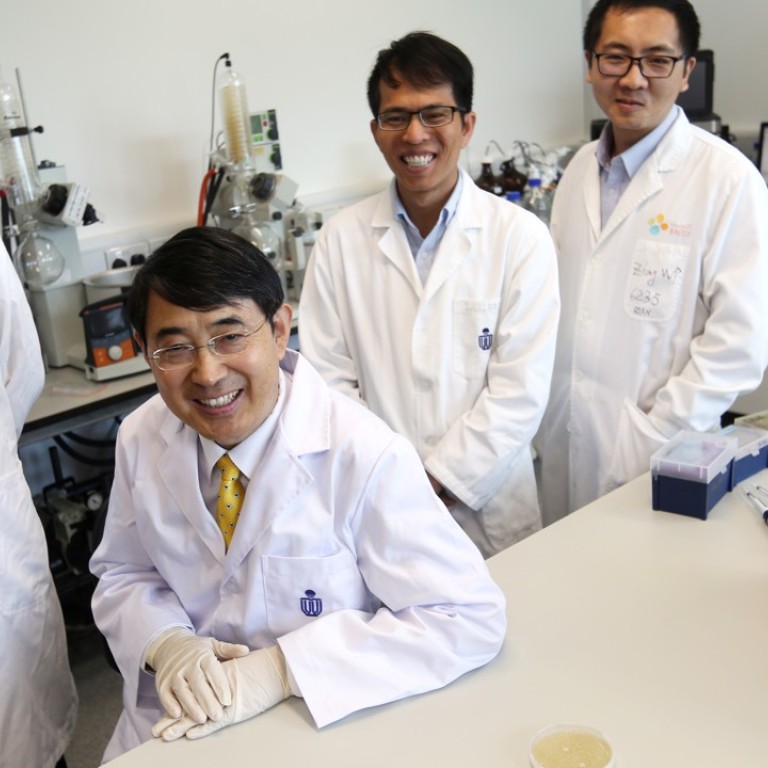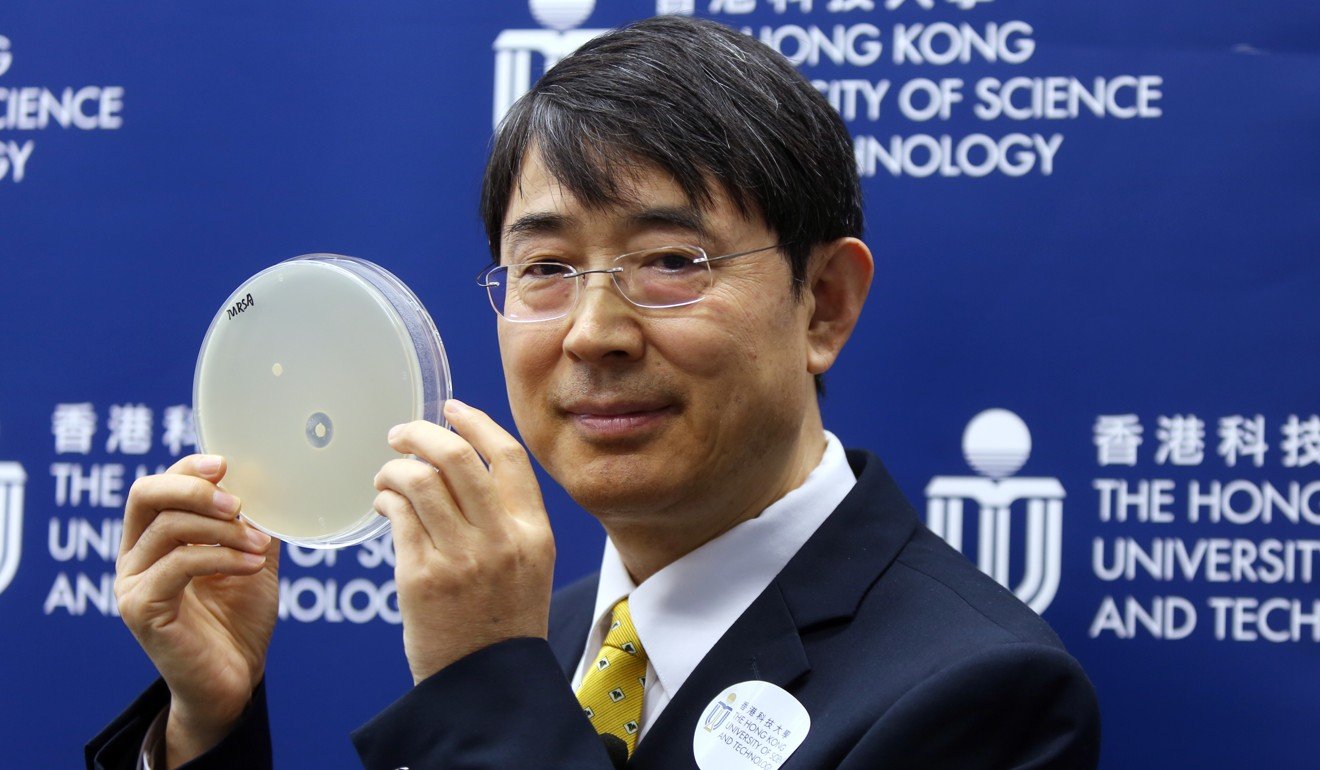
Can superbugs be squashed with better drugs after enzyme discovery by Hong Kong team?
Findings may pave the way for more powerful antibiotics to defeat a type of enzyme in bacteria, but it may be too early to assess the significance of the study
Researchers in Hong Kong may have identified a factor behind a rise in superbugs after discovering a type of enzyme that can break down antibiotics.
The team from the University of Science and Technology said the find could help pharmaceutical companies develop more effective drugs for bacteria strains that have become increasingly resistant.
Scientists studied the effect of a particular type of enzyme – found in bacteria – on peptide antibiotics, a chemically diverse class of the drug.
Superbug breakthrough by HKU researchers in fight against drug-resistant bacteria
“We now understand the mechanism behind why peptide antibiotics are ineffective,” said biologist Qian Peiyuan, leader of the study and chair professor of the university’s division of life science.
“When pharmaceutical companies design new antibiotics, they can take reference from this study,” Qian said. “It will be important for us to tackle [the problem of] antimicrobial resistance.”
When pharmaceutical companies design new antibiotics, they can take reference from this study
The problem of superbugs has been described by the World Health Organisation as “an increasingly serious threat to global public health”.
There are about 20 types of peptide antibiotics available in the market, and researchers have called them the “last line of defence” against superbugs. One such drug, vancomycin, is used to treat the superbug methicillin-resistant Staphylococcus aureus (MRSA).
Qian said while bacterial resistance to peptide antibiotics is low compared with other types of antibiotics, the question remained as to how long the drugs could stay effective against evolving strains.
His team analysed data from more than 6,000 types of bacteria, and found that about 1,200 contained an enzyme called “D-stereospecific resistance peptidases”.
Researchers found that this type of enzyme could identify D-amino acid, a key component of peptide antibiotics, and break down the drug to render it ineffective.
The study was published online in the scientific journal Nature Chemical Biology last month.
Hong Kong doctors asked to report antibiotics use amid global superbug crisis
The research team said it hoped its findings could help inspire drug development in the future.
One possibility is to develop drugs that inactivate the enzyme to retain the effectiveness of the antibiotics. Another might be to alter the composition of the antibiotics, so the enzyme would not be able to take effect.
But Dr Dominic Tsang Ngai-chong, the Hospital Authority’s chief infection control officer, said it was premature to assess the significance of the study.

Tsang, who did not take part in the study, said the research had only targeted one of the four ways bacteria could resist antibiotics, and the problem of the superbug MRSA resistant to vancomycin was very rare in Hong Kong.
“While now they have identified a type of enzyme [that can break down the antibiotics], bacteria have other ways of resisting.”
The doctor cited statistics from last year showing that less than 1 per cent of public hospital patients with enterococci, a type of bacteria, were resistant to vancomycin.

